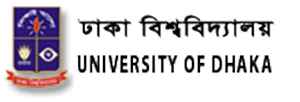Sustainable Development Goals

SDG 15: Life on Land
The University of Dhaka has been actively contributing to the achievement of SDG 15: Life on Land, which focuses on protecting and restoring terrestrial ecosystems, halting land degradation, and reversing biodiversity loss. The university’s various departments and research initiatives are deeply involved in addressing environmental and ecological issues across Bangladesh, particularly in areas related to water and land conservation. Here are some of the notable contributions in 2023.
Shaping Future Leaders
The University of Dhaka integrates SDG 15 into its teaching by offering a robust academic curriculum across various departments focused on environmental sustainability. The Faculty of Earth and Environmental Sciences, for example, provides specialized programs in Geography and Environment, Geology, Oceanography, and Disaster Science, fostering students’ understanding of terrestrial ecosystems, land use, and climate resilience. These academic offerings are designed to equip students with the necessary knowledge to tackle environmental challenges and promote sustainable land use practices.
- Example: The Department of Development Studies’ work on the One Health approach in the Sundarbans during the COVID-19 pandemic exemplifies how interdisciplinary teaching can help students understand the link between human health, biodiversity, and sustainability.
Innovative Solutions for Tomorrow
Research at the university is deeply embedded in the mission of SDG 15, particularly through various academic departments and specialized research centers that investigate issues like land degradation, water quality, and biodiversity conservation. The research is geared toward understanding the ecological and social impacts of land-use changes and identifying sustainable solutions to preserve ecosystems.
- Example: The Department of Soil, Water, and Environment’s research on soil organic carbon dynamics and water quality assessments contributes to practical knowledge on improving land management practices and ensuring long-term sustainability.
- Example: The Department of Sociology’s research on land grabbing and landscape planning in the Chittagong Hill Tracts highlights the intersection of social dynamics and environmental conservation, demonstrating how research informs both policy and practice.
Sustainable Campus and Practices
Stewardship is central to the university’s role in environmental conservation. Through the stewardship of natural resources, faculty members and students at the university are involved in managing and conserving ecosystems both on-campus and in broader environmental contexts. The emphasis is on sustainable management practices and developing long-term solutions to land and water management challenges.
- Example: The Zoology Department’s active role in conservation projects, such as those in Tanguar Haor, where they focus on sustainable wetland management, showcases the university’s commitment to preserving vital ecological zones through responsible stewardship.
- Example: The Faculty of Earth and Environmental Sciences’s interdisciplinary research centers, such as the International Centre for Ocean Governance, focus on sustainable management practices for marine and terrestrial ecosystems, contributing to responsible stewardship of both land and water resources.
Empowering Communities for Change
Community engagement is a cornerstone of the university’s efforts to achieve SDG 15. Many departments and their affiliated clubs, like the Dhaka University Nature Conservation Club (DUNCC), engage in outreach programs that educate and involve local communities in conservation efforts. These initiatives focus on raising awareness and empowering people to take part in preserving biodiversity and managing their local ecosystems sustainably.
- Example: The Zoology Department, through DUNCC, organizes workshops and awareness campaigns in rural and urban areas, helping local communities understand the importance of wildlife conservation and ecosystem health. Their beach clean-ups and riverbank restoration projects are clear examples of hands-on community engagement.
- Example: The Department of Sociology’s research on indigenous land rights and involvement in sustainable landscape management in the Chittagong Hill Tracts emphasizes community-based decision-making and local knowledge integration into conservation efforts.
These efforts demonstrate how the University of Dhaka’s initiatives are not only aligned with SDG 15 but also incorporate an integrated approach that spans teaching, research, stewardship, and community engagement, fostering a culture of sustainability both within and outside the academic environment.

